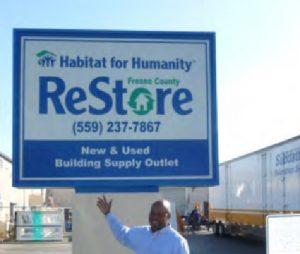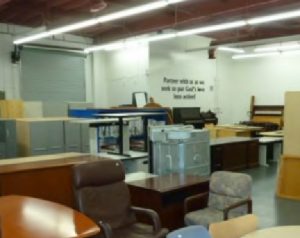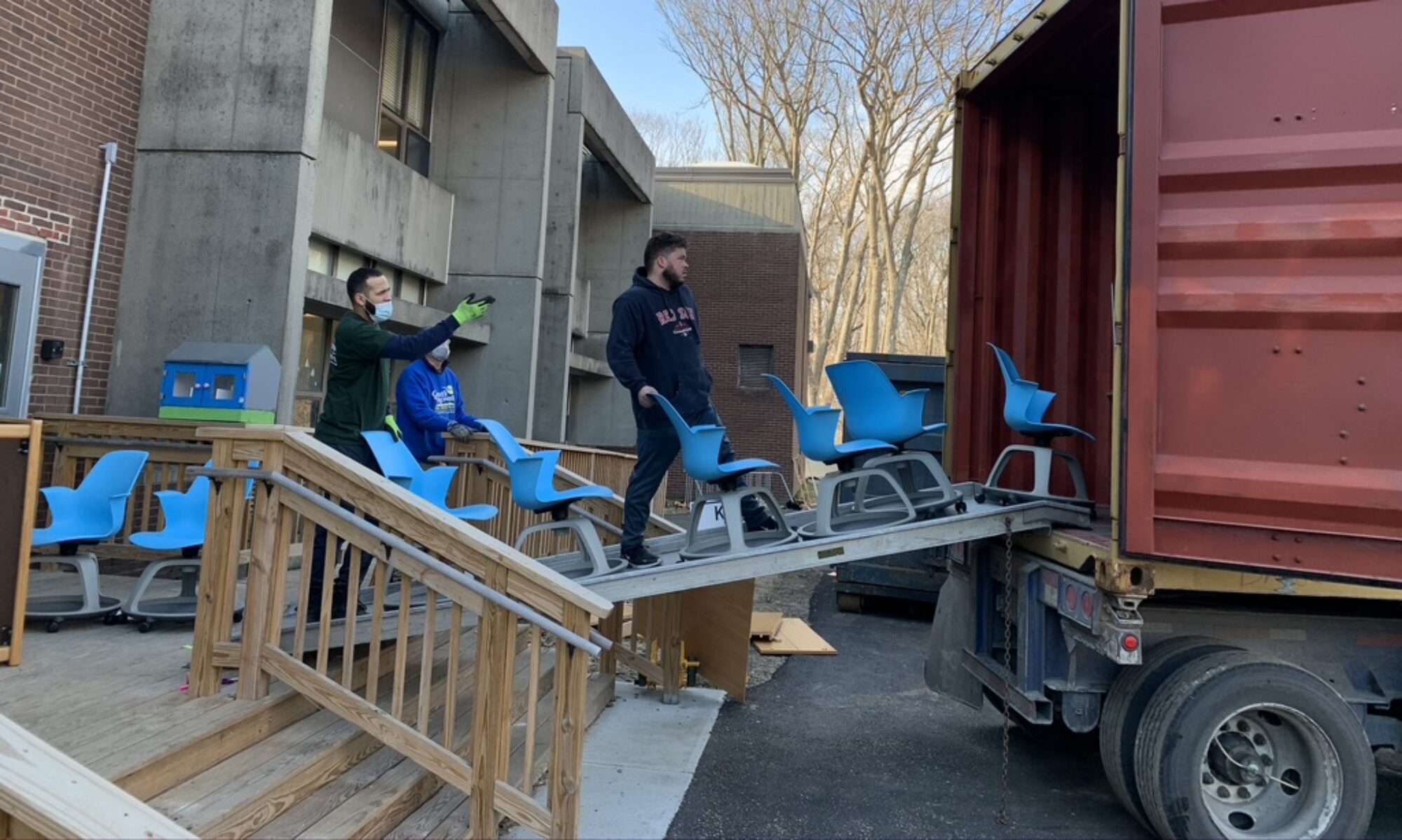
One of IRN’s most productive and satisfying relationships is with Habitat for Humanity chapters and ReStores.
When we started handling surplus furnishings, most of our shipments went to charities working overseas. There was nothing wrong with that, but we knew there is huge need right here in the U.S. for low-cost good-quality furnishings. We set a goal to keep 50% of the surplus we manage here in the States.
In 2016 we achieved that goal. Out of the 7.4 million pounds we handled, 3.9 million pounds or 53% were distributed to U.S. recipients.
Our U.S. partners have included charter and tribal schools, regional furniture banks, Goodwill, the Society of St. Vincent de Paul, and many others. But Habitat for Humanity’s nationwide network stands out. In 2016 nearly half of the surplus we distributed in the U.S. went to Habitat.
As you know, Habitat for Humanity builds houses. Their mission is to provide homes at reasonable cost to deserving families who would otherwise have difficulty getting into the housing market. Habitat is comprised of several hundred individual affiliates. Each affiliate is responsible for coordinating all aspects of home-building in its local area. That includes raising the money to build the homes.
ReStores are one of Habitat’s major fundraisers. ReStores sell lightly used building materials and furnishings to their local communities. So doing, they raise money to build Habitat homes, at the same time they are a source of low-cost furnishings to individuals and families who might not be able to afford the cost of buying new. (If you haven’t checked out your nearest ReStore, you should. You can find it at http://www.habitat.org/volunteer/near-you/find-your-local-habitat.)
Each ReStore stands on its own. Some are small storefronts that sell a few dozen or hundreds of items. Others manage large warehouses and sell thousands of items every month. Each is responsible for gathering donations of furnishings that they can sell to support local Habitat programs. With few exceptions, ReStores rely on large numbers of small individual donations to stock their shelves. They aren’t set up or staffed to be movers or project managers, or to handle generators like colleges or corporations that have periodic large surges of surplus furniture.

That’s where IRN fits in. For many local ReStores and their managers, IRN is a Santa Claus. We can deliver in one afternoon quantities of good-quality furniture that they might need months to collect on their own. Working with IRN, finding furniture is simpler, they have more to sell, and they know IRN stands behind the quality of what we provide. Additionally, since we generally give them a lot of lead time in advance of a shipment, they are able to get out with publicity to let their communities know what to expect, generating more sales, more rapid turnover, and more income.
Take a look at these examples, from Fresno County, CA, and Mason County, WA, where ReStore managers Torin Blount and Marty Crow have turned their relationship with IRN into a major new source of sales and income.
We sent our first shipments – 1,200 pieces – to a Habitat ReStore in Connecticut in December 2013. That number grew to 8,200 pieces in 2014, to 11,100 in 2015, and to more than 19,400 pieces in 2016. That’s more than 100 tractor trailers filled with furniture. We’ve contributed to 89 different Habitat affiliates and ReStores in 27 states (plus two Canadian provinces). A few of these IRN partners have taken dozens of tractor-trailers filled with furniture. Some have taken a few box trucks. In all cases, they’ve gotten furniture they can sell, and they’ve been able to put more money in the bank to build more Habitat for Humanity homes.
And helped IRN achieve our goal of helping more people and communities right here in the U.S.
What a hoot, for all involved. Furniture stays out of the landfill. Local Habitats benefit. Their communities benefit. The original owners of the furniture save money, and know they’ve done the right thing. I’m pretty sure I can speak for everyone at IRN: This has to be one of the best jobs in the world.
If you’re a nonprofit that can use good-quality, gently used furniture to support your mission, or if you’re an organization that has surplus furniture in need of a new home, please let us know. We’re a matchmaker.
[contact-form][contact-field label=Name type=’name’ required=’1’/][contact-field label=Email type=’email’ required=’1’/][contact-field label=Question/Comment type=’textarea’ required=’1’/][/contact-form]
